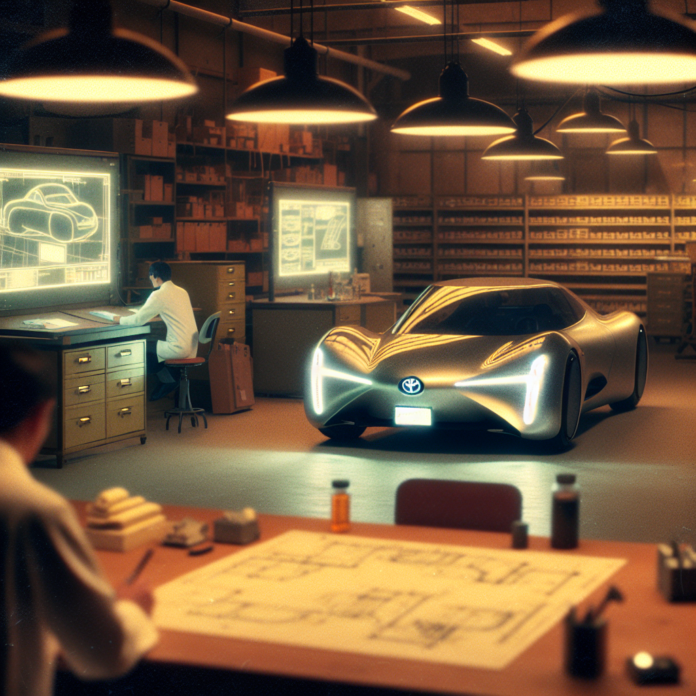How Toyota Plans to Lead the Solid-State Battery Revolution
As the automotive industry shifts towards sustainable energy sources, solid-state battery technology is emerging as a game-changer. Toyota, a global leader in automotive innovation, is spearheading this transition by investing heavily in solid-state batteries. This article explores how Toyota plans to dominate the solid-state battery market, the advantages of this technology, and its potential impact on the future of electric vehicles (EVs).
What Are Solid-State Batteries?
Solid-state batteries represent the next generation of battery technology, offering significant improvements over conventional lithium-ion batteries. Unlike traditional batteries that use liquid electrolytes, solid-state batteries rely on solid electrolytes, providing enhanced energy density, safety, and lifespan.
Key Advantages of Solid-State Batteries
- Higher Energy Density: Solid-state batteries store more energy in the same space, resulting in longer driving ranges for EVs.
- Faster Charging Times: These batteries can charge in minutes instead of hours, significantly improving convenience for drivers.
- Enhanced Safety: Without flammable liquid electrolytes, the risk of battery fires is drastically reduced.
- Longer Lifespan: Solid-state batteries experience less wear and tear over time, making them more cost-effective.
Toyota’s Strategy for Solid-State Battery Leadership
Toyota has long been a pioneer in hybrid and electric vehicle technology. The company’s commitment to solid-state batteries is evident in its research, partnerships, and strategic implementations.
Mass Production Plans
Toyota is actively working to bring solid-state batteries to mass production. The company aims to introduce its first EVs powered by solid-state batteries by the mid-2020s, with commercial availability projected by 2027–2028. By focusing on scalability and reducing production costs, Toyota seeks to make solid-state battery-powered EVs as accessible as possible.
Investment in Research and Development
Toyota has allocated billions of dollars to battery research and development. The automaker has also partnered with leading universities and battery manufacturers to accelerate innovation. This commitment ensures Toyota remains at the forefront of solid-state battery breakthroughs.
Patents and Technological Innovations
Over the years, Toyota has secured thousands of patents related to solid-state battery technology. These patents cover various aspects, including material improvements, production techniques, and efficiency enhancements. This extensive intellectual property portfolio gives Toyota a competitive advantage in the market.
The Impact on the Electric Vehicle Industry
The widespread adoption of solid-state batteries could revolutionize the EV industry in several ways.
Increased EV Adoption
One of the main barriers to EV adoption is range anxiety and lengthy charging times. Solid-state batteries directly address these issues, making EVs more appealing to consumers who were hesitant to switch from traditional gasoline-powered cars.
Reduction in Battery Costs
As production scales up, the cost of solid-state batteries is expected to decline. This will make EVs more affordable for the general population and drive greater market penetration.
Environmental Benefits
Compared to lithium-ion batteries, solid-state batteries use fewer rare and environmentally harmful materials. Additionally, their longer lifespan means fewer battery replacements, reducing electronic waste.
Challenges in Implementing Solid-State Batteries
While the prospects of solid-state batteries are promising, there are several challenges that Toyota and other automakers must overcome.
Manufacturing Complexity
Producing solid-state batteries on a large scale is still a challenge. The technology requires new manufacturing processes that are currently expensive and complicated to implement.
Material Limitations
Finding the right combination of solid electrolytes that ensure optimal conductivity and durability is still a work in progress. Ongoing research and development are necessary to fine-tune these materials.
Cost Considerations
Although solid-state batteries promise long-term cost savings, their initial production costs are significantly higher than traditional lithium-ion batteries. As Toyota and other automakers continue refining the production process, costs will gradually decrease.
The Road Ahead for Toyota
Despite these challenges, Toyota remains committed to solid-state battery technology. The company has outlined a roadmap to integrate solid-state batteries into its vehicle lineup, starting with hybrids before moving to full EVs. This phased approach allows Toyota to test the technology on a smaller scale before widespread deployment.
Collaborations and Industry Partnerships
To accelerate progress, Toyota is collaborating with other automotive and technology giants. By sharing knowledge and resources, these partnerships aim to overcome current technological and manufacturing hurdles.
Consumer Expectations
Toyota understands that consumer expectations are evolving. With increasing demand for sustainable and high-performance EVs, the company is aligning its strategy to meet these expectations and stay ahead of the competition.
Conclusion
Toyota’s leadership in the solid-state battery revolution has the potential to reshape the automotive industry. By investing in cutting-edge research, optimizing production methods, and navigating challenges strategically, Toyota aims to deliver the next generation of EVs with superior battery technology.
As the global demand for electric vehicles continues to grow, Toyota’s advancements in solid-state battery technology will likely set new benchmarks for efficiency, range, and environmental sustainability. The future of EVs looks promising, and Toyota is positioning itself at the forefront of this transformative journey.


